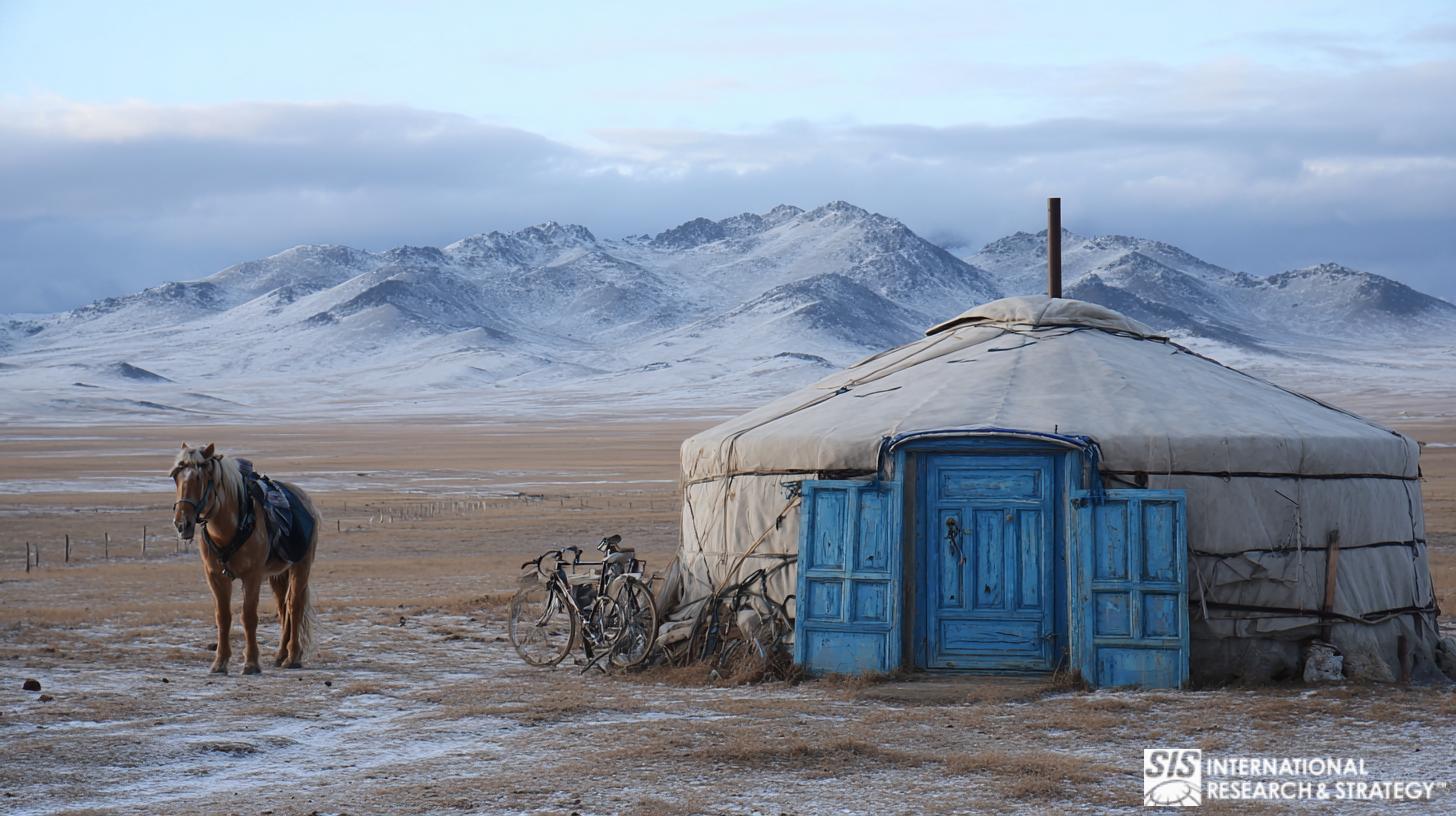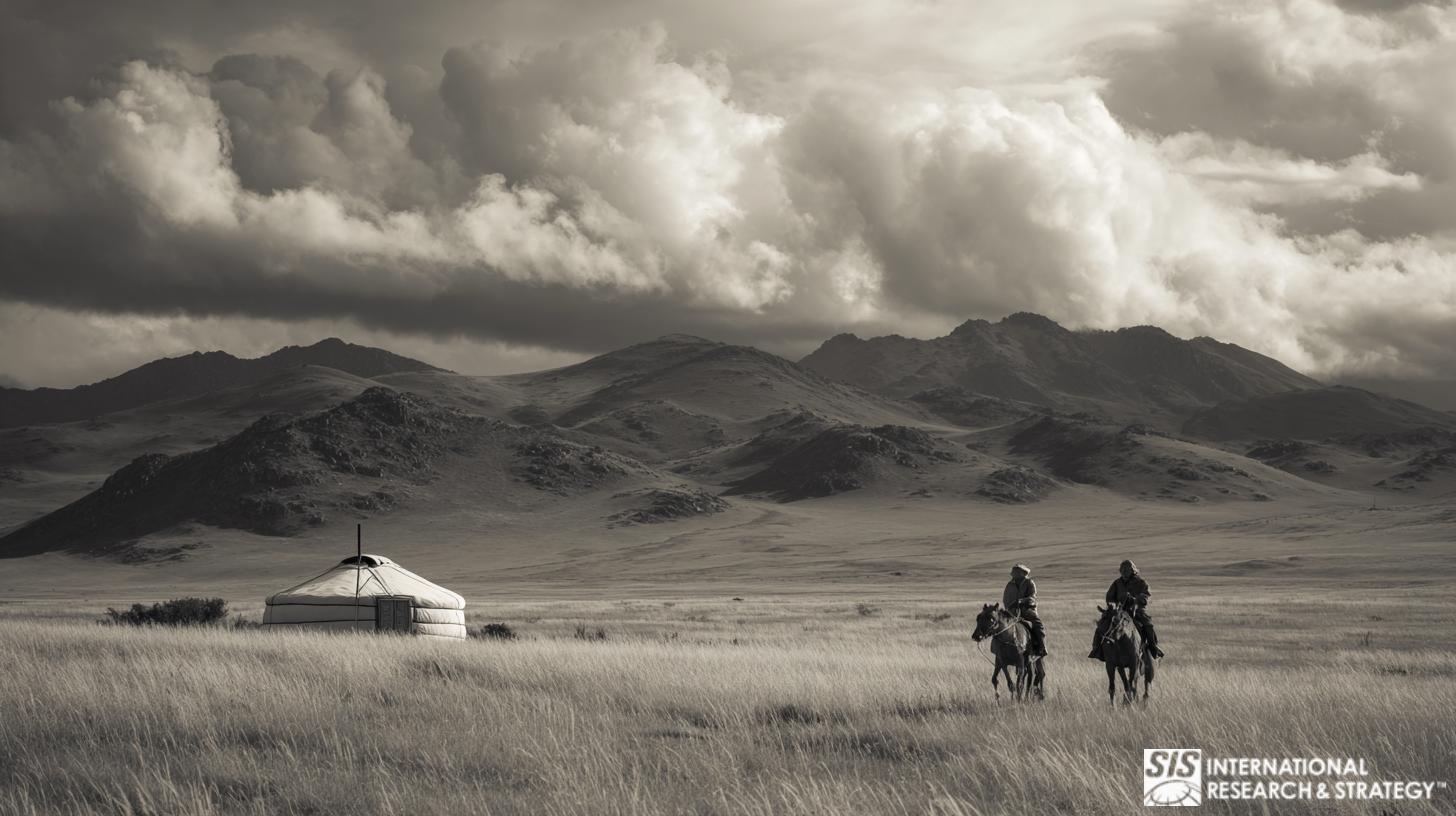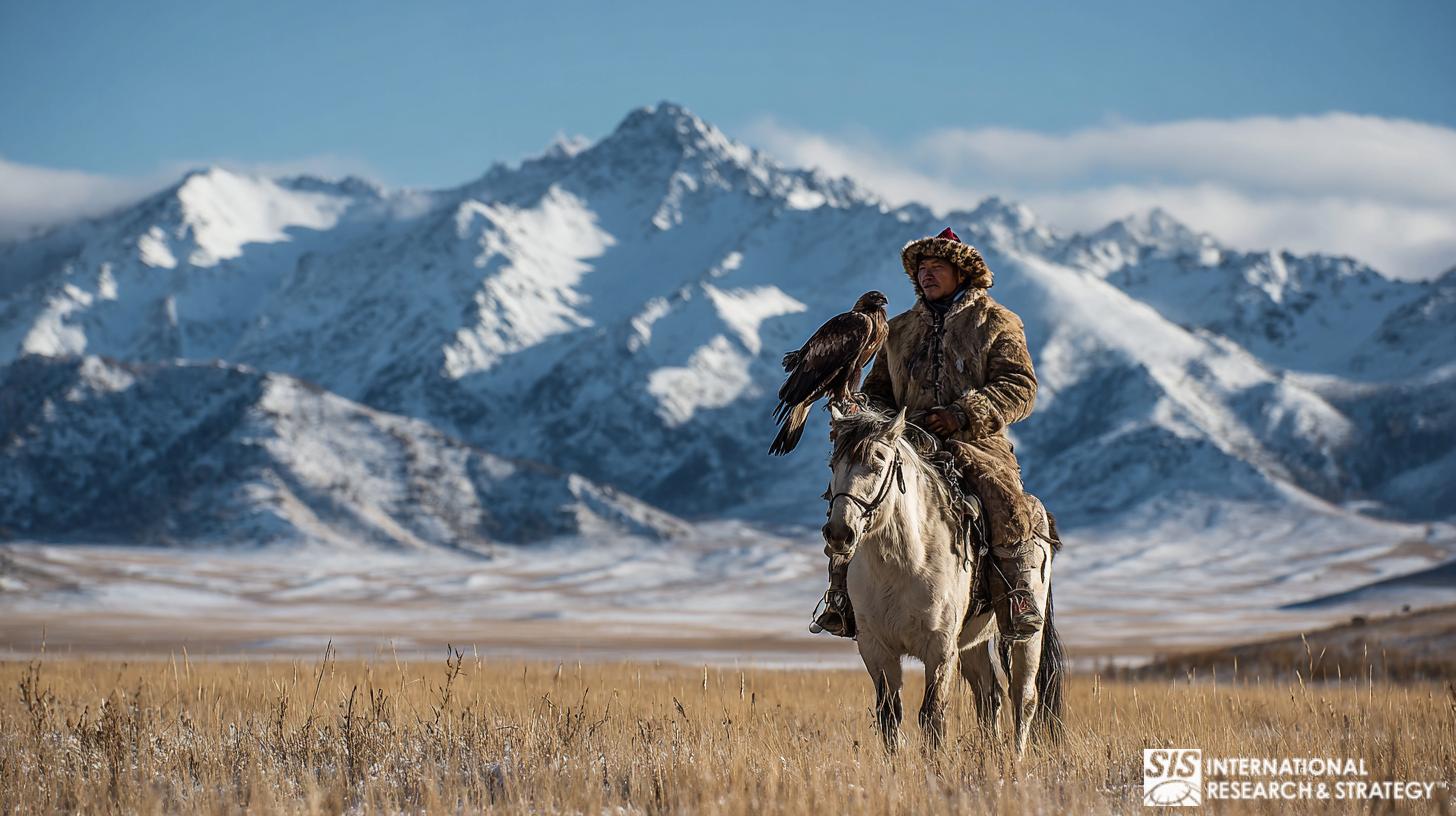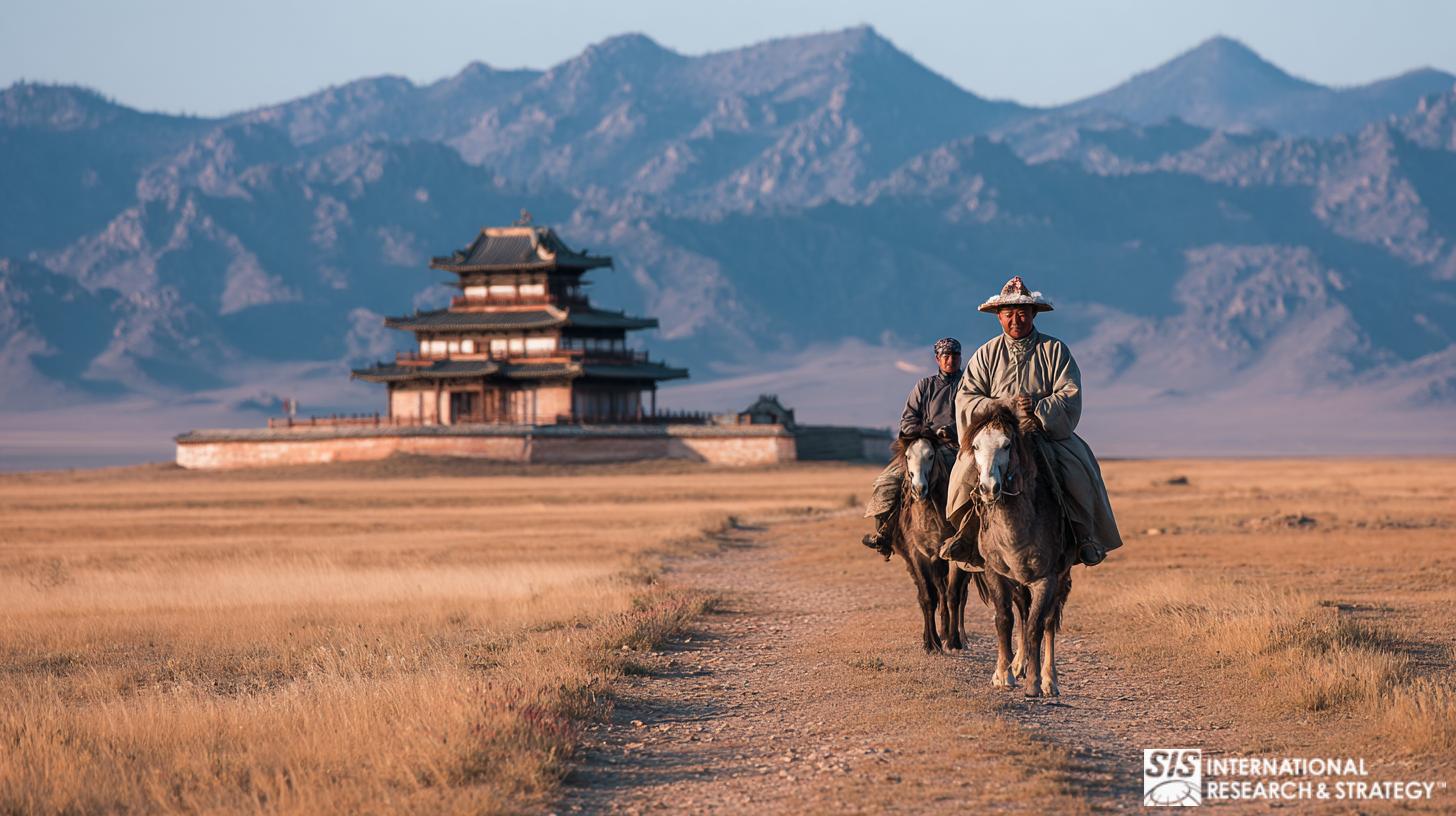Étude de marché en Mongolie

Understanding the pulse of Mongolian consumers and navigating the local nuances are key to thriving in this market. With the right market research, businesses can effectively position themselves to meet local needs, seize opportunities, and achieve sustainable growth.
Mongolia—a land of expansive steppes, rich history, and emerging opportunities—offers a wealth of potential for businesses seeking expansion. To unlock these opportunities, market research in Mongolia becomes the guiding compass that provides crucial insights.
Table of Contents
What Is Market Research in Mongolia?
Market research helps businesses make informed decisions to capitalize on the unique opportunities and challenges of the Mongolian market. It also helps businesses identify consumer needs, preferences, and purchasing behaviors, allowing them to tailor their products and services to meet local demands.
This type of research includes analyzing industry trends, consumer behavior, and competitive landscape, as well as understanding cultural nuances that impact purchasing decisions. By conducting market research in Mongolia, businesses can gain insights into what drives consumer preferences, how to position their brand effectively, and where the greatest opportunities for growth lie.
Why Do Businesses Need Market Research in Mongolia?

By leveraging market research in Mongolia, companies can ensure their strategies align with local market needs and develop solutions that address specific regional challenges. This approach not only helps mitigate risks but also enhances the potential for long-term success and growth.
Market research in Mongolia also helps businesses make informed decisions about the Mongolian market. The market presents unique challenges, including cultural diversity, vast geographical distances, and varying consumer behaviors. These challenges make it essential for companies to understand the needs, preferences, and purchasing patterns of local consumers.
Moreover, through market research in Mongolia, businesses can identify key trends, evaluate market potential, and recognize the specific needs of the population. This research helps address questions such as: What products and services are most in demand? How do cultural differences impact consumer behavior? By gaining insights into these issues, companies can tailor their marketing strategies to effectively reach and engage the Mongolian audience.
Key Industries in Mongolia
Market research in Mongolia highlights several key industries that drive the local economy and offer significant growth potential for businesses. Given Mongolia’s rich natural resources, including coal, copper, and gold, the mining industry stands out as one of the most promising sectors. Companies like Oyu Tolgoi and Erdenes Tavan Tolgoi play a pivotal role in the mining landscape, contributing significantly to Mongolia’s economic growth.
Another important industry is agriculture, which focuses on livestock farming, particularly sheep, goats, and cattle. Market research in Mongolia reveals that the agricultural sector has potential for modernization, which opens up opportunities for companies specializing in agricultural technology and sustainable practices. Additionally, the renewable energy sector is gaining traction, driven by initiatives to reduce reliance on imported fossil fuels. Companies like Clean Energy Asia are leading efforts to provide clean energy solutions that benefit both businesses and local communities.
Tourisme

La Mongolie possède l'un des plus grands marchés extérieurs d'Asie. Tout le monde l'appelle le « marché noir », même s'il ne vend rien d'illégal.
Khustain Nuruu National Park is a few hours from Ulaanbaatar. This park is one of the few places to see the Przewalski wild horses, and it is very famous for them. Mongolia is one of three countries that you can find these horses. The park covers an impressive 500 square kilometers of extraordinary natural features.
Culture mongole
Mongolia has a strong connection with traditional herding culture, which is most evident in rural areas. Even as Mongolia tries to modernize, the people still practice the ancient traditions. You can even buy an apartment using livestock instead of cash.
Ulaanbaatar is a city where luxury and poverty collide. This urban center is changing so fast that it might be unrecognizable in the next five to seven years. These changes will benefit the whole of Ulaanbaatar, yet they are unlikely to affect Mongolian culture.
The capital’s architecture is spectacular in its diversity. Temples lie between old communist buildings and skyscrapers. It is a country of contrast that has experienced a significant shift. People have moved in by the thousands, and heavy industry has remade the culture.
Minéraux et mines
La Mongolie a reçu le surnom de « Mine-Golia ». Comme son nom l’indique, le pays possède une forte industrie minière. Le charbon, le cuivre et d’autres réserves abondent sous son sol. Une grande partie de la demande provient de la Chine voisine.
L’exploitation minière attire les investisseurs étrangers et le marché du luxe commence à décoller. Puis il y a eu un effondrement, avec le ralentissement de la croissance chinoise et l'effondrement des prix des matières premières. Les choses commencent à redevenir prometteuses avec l’ouverture de nouveaux projets miniers.
L'élevage a récemment connu une croissance rapide, le secteur produisant du lait et de la viande de chèvre, de mouton, de bovin et de chameau. La Mongolie produit également des cultures vivrières comme les pommes de terre et les céréales. Mais la production agricole est loin derrière celle de l’élevage. La production maraîchère est proche de la stagnation.
Il y a eu un secteur en croissance pour les infrastructures telles que les transports et la construction de routes. La Mongolie ne possède pas de port maritime et dépend donc de ses routes et de ses chemins de fer pour son transport.
Opportunities in Mongolia
Mongolia presents numerous opportunities across various sectors that businesses can explore for growth. By leveraging market research in Mongolia, companies can uncover these opportunities and strategically position themselves for success.
- Exploitation minière: The mining industry offers significant potential, especially for companies specializing in mineral exploration, mining equipment, and sustainable mining practices. Mongolia’s rich reserves of coal, copper, and gold present ample opportunities for investment and partnership.
- Agriculture: Opportunities exist for businesses to introduce sustainable agricultural practices and technology solutions. With a focus on enhancing productivity and modernizing livestock farming, companies providing agricultural technology, training, and supply chain solutions can expand their operations in Mongolia.
- Énergie renouvelable: The renewable energy sector is promising, driven by efforts to reduce dependence on imported fossil fuels. Businesses specializing in solar, wind, or other clean energy solutions can benefit from government incentives and a supportive policy environment, while also making a positive impact on local communities.
- Tourisme: Mongolia’s unique culture, history, and natural landscapes offer significant potential for tourism. Companies that focus on adventure tourism, cultural tours, and eco-tourism can capitalize on the growing interest in authentic travel experiences.
- Le développement des infrastructures: As Mongolia continues to improve connectivity, there are opportunities for businesses involved in construction, logistics, and infrastructure projects. Investments in better roads, railways, and telecommunications can help enhance economic activity across the country.
- Services de santé: There is a growing need for improved healthcare facilities and services in Mongolia. Companies offering medical equipment, telehealth solutions, and healthcare management services can find opportunities to support the region’s healthcare infrastructure.
- Éducation et formation: With a focus on skills development, businesses specializing in education and vocational training can help meet the local demand for skill-building initiatives. Opportunities exist for companies providing training in sectors such as mining, agriculture, and renewable energy.
Key Market Indicators for Mongolia
| Market Indicator | Metric | Context for Market Research |
|---|---|---|
| GDP Growth Rate | Expected high single-digit growth (Economic performance is heavily reliant on commodity prices). | Indicates high potential for rapid consumer spending increase and business investment in non-mining sectors. |
| Urbanization and Population Density | Approximately **48% of the national population** resides in Ulaanbaatar. | Concentrates the consumer market, simplifying logistics and focus group recruitment, while rural markets remain challenging. |
| GDP Composition (Mining Sector) | Mining constitutes **25% of GDP** and over **90% of export revenue**. | The market economy is highly susceptible to external shocks and demand from China; consumer confidence is tied to commodity cycles. |
| Internet Penetration Rate | **Over 75%** of the population has active internet access (high mobile penetration). | Facilitates digital surveys, online recruitment, and mobile advertising strategies across the entire country. |
| Average Age of Population | Around **29 years old** (one of the youngest in Asia). | Signifies a tech-savvy consumer base, receptive to global trends and digital services, driving demand for education and lifestyle products. |
Source: Data compiled from the World Bank, the National Statistics Office of Mongolia (NSO), and regional economic outlook reports.
Défis
Ulaanbaatar has become the third most polluted city in the world. Its rapid population growth and dependence on coal are to blame.
Les districts sont à l'origine du problème de la pollution par le charbon. Les habitants brûlent du charbon pour chauffer leurs maisons lorsque la température baisse en hiver. Le gouvernement lutte contre ce grave problème, mais à ce stade, cela ne sert à rien.
How SIS International’s Market Research in Mongolia Helps Businesses

Market research is crucial for any company looking to enter or expand in Mongolia. At SIS International, we specialize in providing comprehensive étude de marché services that help businesses gain the insights they need to succeed.
- Planification stratégique améliorée: Our market research provides detailed data on consumer preferences, cultural factors, and emerging trends, enabling businesses to refine their strategic plans to better meet the needs of Mongolian customers.
- Increased Revenue Potential: By understanding local consumer behaviors and identifying high-demand products and services, we help companies tap into revenue opportunities and create offerings that resonate with their target audience.
- Atténuation des risques: Our market research services highlight potential risks and challenges specific to the Mongolian market, allowing businesses to prepare effective mitigation strategies and avoid costly missteps.
- Efficacité marketing améliorée: By leveraging insights from market research in Mongolia, businesses can focus their marketing efforts on the channels and messages that resonate most with local consumers, maximizing return on investment.
- Croissance accélérée: Understanding market trends and consumer needs allows companies to innovate effectively, leading to accelerated growth and long-term success in Mongolia.
À propos de SIS International
SIS International propose des recherches quantitatives, qualitatives et stratégiques. Nous fournissons des données, des outils, des stratégies, des rapports et des informations pour la prise de décision. Nous menons également des entretiens, des enquêtes, des groupes de discussion et d’autres méthodes et approches d’études de marché. Contactez nous pour votre prochain projet d'étude de marché.


